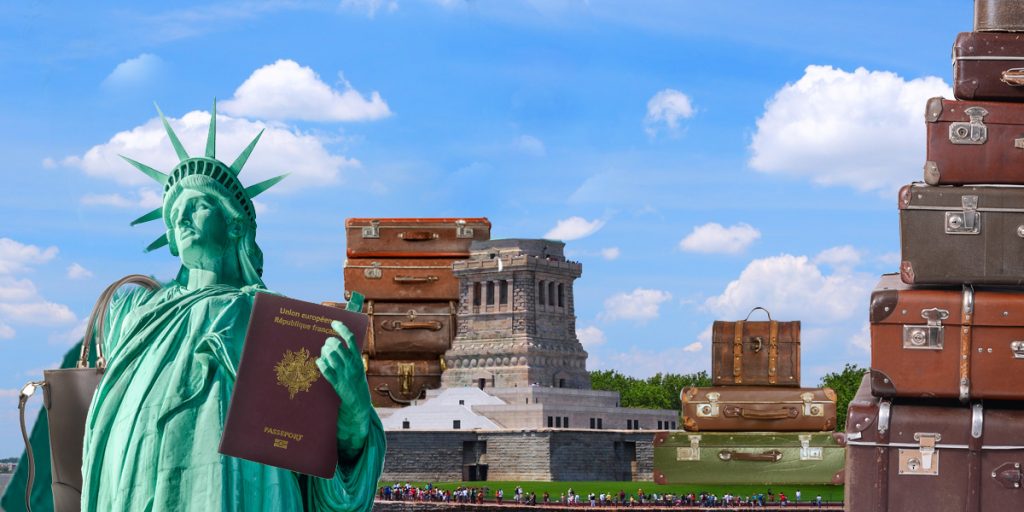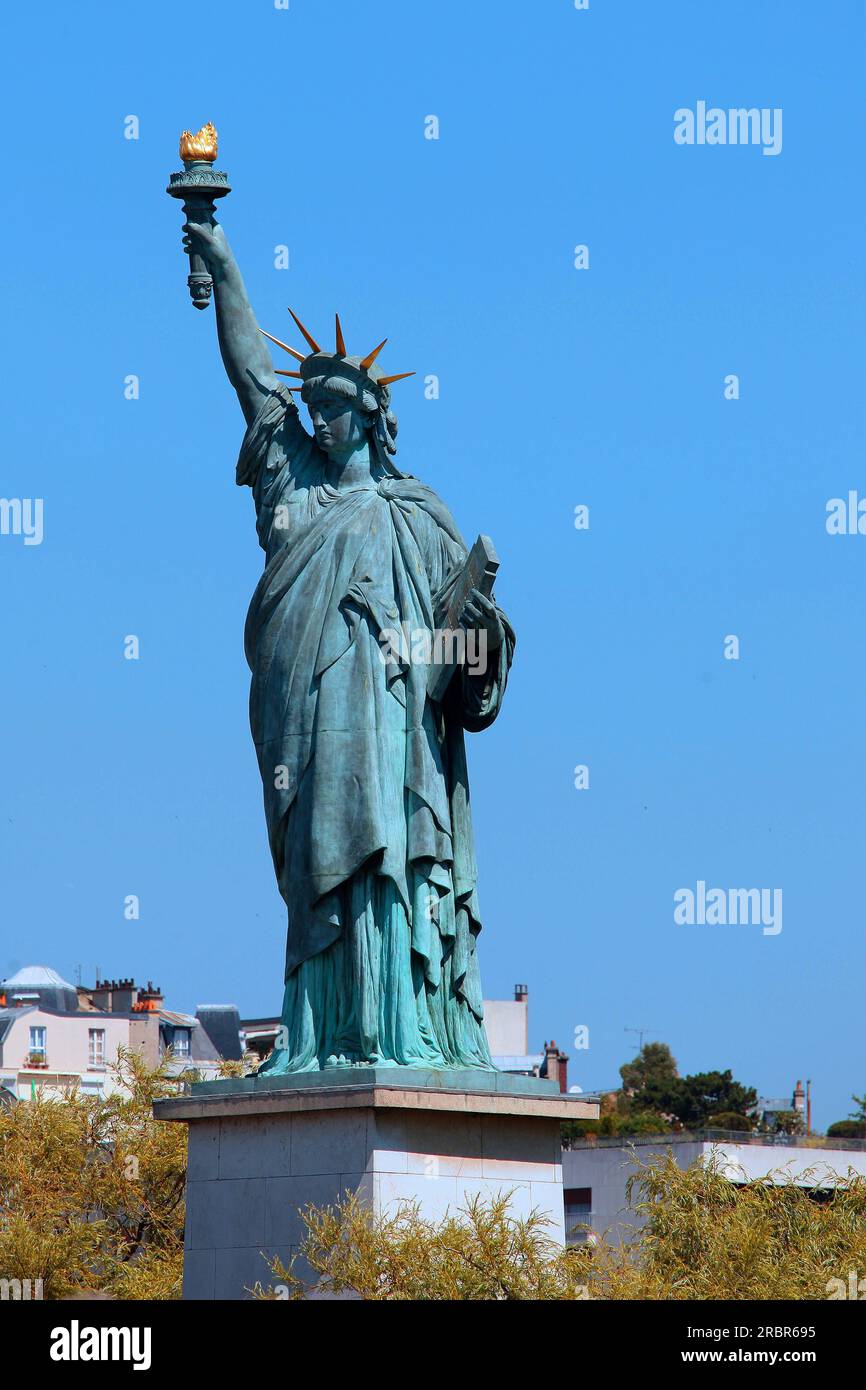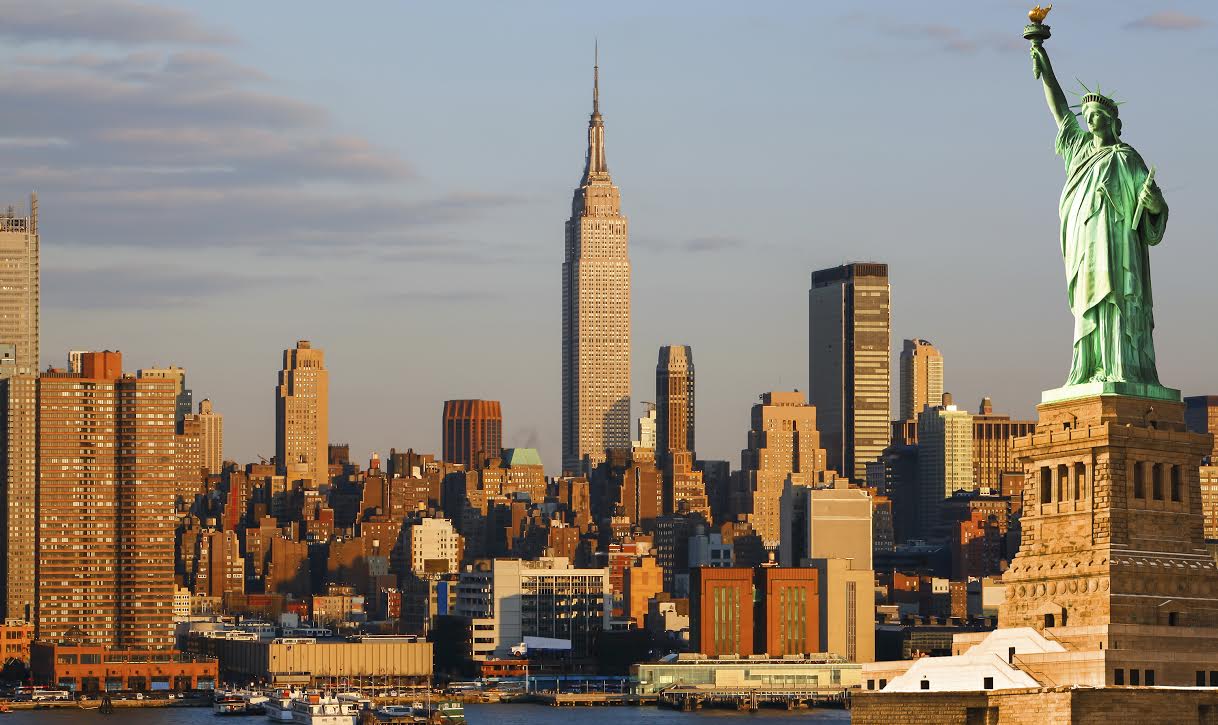The Statue of Liberty stands as a powerful emblem of freedom and friendship between France and the United States. Recently, discussions have emerged suggesting that France might seek to reclaim this iconic monument. This revelation has generated global curiosity and debate. What motivates this potential desire, and what does it mean for the future of Franco-American relations?
The Statue of Liberty, gifted by France to the United States in 1876, has long served as a beacon of hope and democracy. Its location in New York Harbor has become a defining feature of the American landscape. However, recent claims indicate that France may consider reclaiming this historic symbol, raising important questions about its significance and the historical bonds between the two nations.
In this article, we will examine the reasons behind France's possible interest in reclaiming the Statue of Liberty, explore the historical context of this gift, and analyze the broader implications for both countries. Our discussion will provide a comprehensive understanding of the cultural, political, and diplomatic dimensions surrounding this issue.
Read also:Megan Good A Journey Through Her Romantic Life And Career
Table of Contents
- The Rich History of the Statue of Liberty
- Why France Might Seek to Reclaim the Statue of Liberty
- The Profound Symbolism of the Statue
- Impact on Franco-American Diplomatic Relations
- Tourism and Economic Ramifications
- Public Opinion and Reactions
- Legal and Ownership Challenges
- Cultural Importance and National Identity
- Potential Solutions and Collaborative Approaches
- Conclusion and Future Considerations
The Rich History of the Statue of Liberty
The Statue of Liberty was conceived and crafted by the renowned French sculptor Frédéric Auguste Bartholdi. Its creation was funded through contributions from both the French and American publics. Completed in 1886, it was presented as a gift from France to celebrate the centennial of American independence and the enduring alliance between the two nations. The construction and installation of this monument were remarkable feats of engineering and artistry.
Origins and Motivations
The concept for the statue originated in France as a means to honor the principles of liberty and democracy. Bartholdi envisioned a colossal figure that would encapsulate these ideals and serve as a tribute to the friendship between France and the United States. The project was enthusiastically embraced on both sides of the Atlantic, and the statue soon became a symbol of hope for countless immigrants arriving in America.
Construction and Dedication
Construction of the statue commenced in France in 1875, and its components were transported to the United States in 1885. The pedestal was erected on Bedloe's Island (now Liberty Island), and the statue was officially inaugurated on October 28, 1886. Since that time, it has welcomed millions of visitors and immigrants, solidifying its status as an enduring symbol of freedom.
Why France Might Seek to Reclaim the Statue of Liberty
Recent conversations about France potentially reclaiming the Statue of Liberty have captured significant attention. Although no formal proposal has been made, several factors may explain this interest. These include cultural heritage, economic considerations, and symbolic significance.
- Cultural Heritage: France may perceive the statue as a critical component of its national identity and cultural legacy. As the original creator of this monument, France might aim to reclaim its historical importance.
- Economic Factors: The Statue of Liberty attracts millions of tourists annually, contributing substantially to the U.S. economy. France could be interested in harnessing this tourist attraction to invigorate its own tourism sector.
- Symbolic Importance: The statue embodies the shared values of liberty and democracy. France might wish to reclaim it as a way to reinforce its dedication to these principles in an evolving global context.
The Profound Symbolism of the Statue
The Statue of Liberty represents far more than a mere monument; it encapsulates the ideals of freedom, democracy, and international collaboration. For France, the statue is a testament to its role in championing these values globally. For the United States, it serves as a welcoming beacon to immigrants and a reminder of its foundational principles.
Global Significance
The statue's symbolism transcends the Franco-American relationship. It has become a universal emblem of hope and freedom, inspiring individuals worldwide. Its presence in New York Harbor serves as a powerful reminder of the potential of international cooperation and shared values.
Read also:Discover The Best Beach Bars In St Johns A Tropical Paradise Awaits
Impact on Franco-American Diplomatic Relations
The possibility of the Statue of Liberty's return could have substantial implications for Franco-American relations. While the statue was initially gifted as a symbol of friendship, its return might be interpreted as either a diplomatic gesture or an indication of shifting priorities.
Historical Precedents
Throughout history, nations have renegotiated agreements regarding cultural artifacts and gifts. The return of the Statue of Liberty could establish a precedent for similar discussions involving other iconic monuments and artifacts. Diplomatic negotiations would be essential to ensure that any agreement respects the historical significance of the statue.
Tourism and Economic Ramifications
The Statue of Liberty is a major tourist destination, drawing millions of visitors each year. Its potential return to France could have significant economic consequences for both countries. For the United States, the loss of this iconic monument could impact tourism revenue and national identity.
Potential Benefits for France
France might benefit from the statue's return by attracting more tourists and enhancing its cultural prominence. However, the logistics of relocating such a massive structure would pose significant challenges and costs. Both nations would need to carefully evaluate the economic advantages against the logistical and financial hurdles.
Public Opinion and Reactions
The concept of France reclaiming the Statue of Liberty has elicited a range of responses from the public. Some view it as a betrayal of the Franco-American friendship, while others see it as an opportunity to honor the statue's origins and cultural importance.
Global Perspectives
Public opinion on this matter varies around the world. Many individuals regard the statue as a shared cultural heritage that transcends national borders. Others believe that its return to France could enhance its symbolic importance and foster cultural understanding.
Legal and Ownership Challenges
The legal status of the Statue of Liberty is a critical aspect of this discussion. Although the statue was gifted by France, its ownership and maintenance have been entrusted to the United States. Any decision to return the statue would necessitate careful legal consideration and diplomatic negotiation.
International Agreements
International treaties governing cultural heritage and artifacts would play a pivotal role in determining the statue's fate. Both countries would need to adhere to these agreements to ensure that the statue's return is conducted legally and ethically.
Cultural Importance and National Identity
The Statue of Liberty carries immense cultural significance for both France and the United States. Its return to France could alter perceptions of national identity and cultural heritage. For the United States, the statue is a defining symbol of its values and history. For France, it represents a proud legacy of promoting liberty and democracy.
Shared Values
Despite the potential controversy surrounding the statue's return, both countries share a commitment to the values it represents. The statue's cultural importance extends beyond national boundaries, making it a symbol of hope and freedom for people globally.
Potential Solutions and Collaborative Approaches
Several possible solutions could address the issue of the Statue of Liberty's return. These include joint ownership, temporary exhibitions, or collaborative projects that celebrate the statue's cultural significance.
- Joint Ownership: Both countries could agree to share ownership of the statue, allowing it to remain in the United States while recognizing France's contribution to its creation.
- Temporary Exhibitions: France could host temporary displays of the statue or its replicas, enabling people to experience its cultural importance without permanently relocating it.
- Collaborative Projects: Both countries could collaborate on initiatives that honor the statue's history and symbolism, fostering greater cultural understanding and cooperation.
Conclusion and Future Considerations
In summary, the notion of France reclaiming the Statue of Liberty raises important questions about cultural heritage, diplomacy, and national identity. While the statue's return could have significant implications for both countries, it also offers an opportunity to celebrate its shared significance and promote deeper understanding between France and the United States.
We invite you to share your thoughts and opinions on this topic in the comments section below. Your feedback is invaluable in encouraging meaningful discussions about the cultural and historical importance of the Statue of Liberty. For additional insights into global affairs and cultural heritage, explore our other articles on this website.


